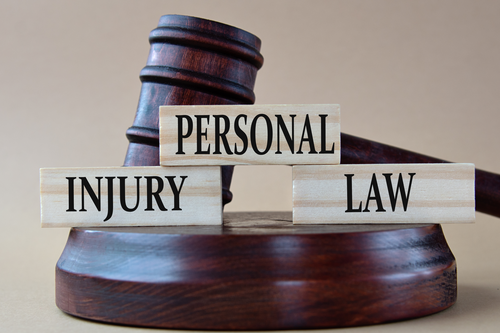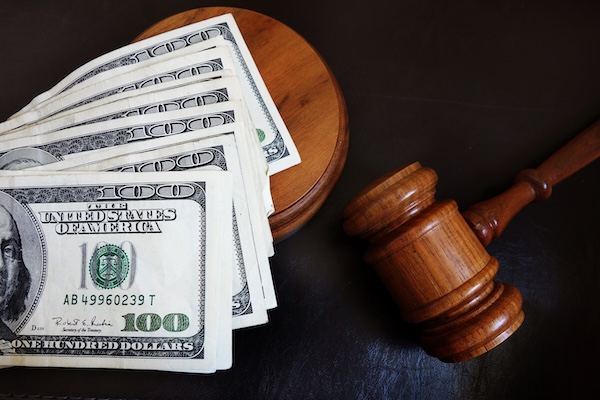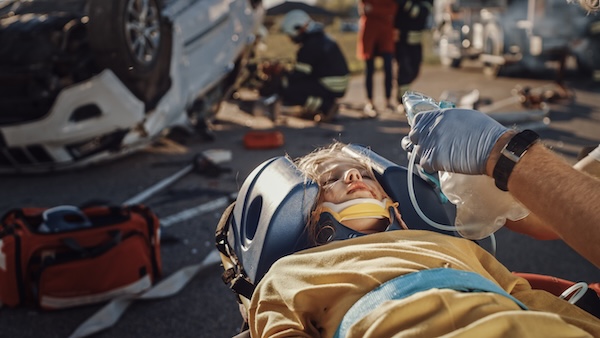When you get hurt in an accident, the physical and emotional impact is huge. On top of that, you’ve got medical bills, lost income, and uncertainty about your legal rights under personal injury law. That’s where a personal injury lawyer comes in. A personal injury lawyer helps accident victims understand their options and get the compensation they deserve for their injuries. From gathering evidence to negotiating with insurance companies or going to court, a good lawyer is your advocate.
In this post, we’ll cover the role of a personal injury lawyer, what they do for accident victims, and how working with an experienced Atlanta personal injury lawyer can help you through the process and get you the most compensation.
Role of a Personal Injury Lawyer
Personal injury lawyers help people who have been hurt because of someone else’s negligence. In Georgia, personal injury attorneys guide their clients through the process, protect their rights, and get them fair compensation for the damages they’ve suffered. The role of a personal injury lawyer goes beyond legal representation; they are your support, advisor, and advocate throughout the journey, and personal injury law firms provide the collective expertise and resources needed to handle your case effectively.
Consultation and Case Review
The first step in a personal injury case is a consultation with the lawyer. During this meeting, the lawyer will listen to your account of the accident, gather facts, and review the case. The lawyer will determine if the case qualifies under Georgia law for a personal injury claim and estimate the potential compensation for your injuries and the circumstances of the incident, potentially leading to a personal injury lawsuit.
Investigation
One of the lawyer’s jobs is to investigate the accident. In cases of motor vehicle accidents, this evidence is crucial to establishing fault and the extent of injuries. This means gathering and reviewing evidence such as police reports, witness statements, photos, and medical records. The lawyer may consult with experts like accident reconstruction specialists or medical professionals to determine fault and quantify the client’s damages. This investigative work is key to building a strong case that can withstand the other side or an insurance company.
Negotiation
Once the evidence is gathered, the lawyer negotiates with the insurance companies. Insurance companies will try to lowball or deny claims, but an experienced personal injury lawyer knows how to counter those tactics. The lawyer presents the evidence, calculates the right compensation, and pushes for a settlement that covers everything the client has lost, including medical bills, lost wages, medical expenses, and pain and suffering.
Litigation and Court Representation
If negotiations with the insurance company don’t result in a fair settlement, the lawyer may advise the client to file a lawsuit. The lawyer will handle everything from drafting legal documents to representing the client in court. They’ll present evidence, call witnesses, and argue the case to a judge or jury. In Georgia, personal injury lawyers make sure the case follows the legal process and the state’s civil laws.
Ongoing Support and Advocacy
Beyond legal advice, personal injury lawyers provide ongoing support to their clients during a difficult time. They manage communication with the other side, handle the legal details, and let the client focus on getting better. By being a strong advocate for the injured party, the lawyer makes sure their client’s interests are represented, in and out of court.
Legal Process in Personal Injury Cases
The legal process in personal injury cases in Georgia is designed to give victims a fair chance to get compensation for their injuries. It’s a structured process that begins with a claim and ends with a trial if a settlement can’t be reached. Each step requires attention to detail and compliance with Georgia’s laws.
Filing the Lawsuit
The process starts with the personal injury lawyer filing a formal complaint with the court. This complaint outlines the plaintiff’s case, the injury, how it happened, and the damages being sought. In Georgia, personal injury claims must be filed within the statute of limitations, usually two years from the date of the injury. Filing the lawsuit starts the legal process and sets the stage for both sides to present their evidence and arguments.
Discovery
Once the lawsuit is filed, the case enters the discovery phase. During this stage, both sides exchange information and evidence. This includes written questions (interrogatories), requests for documents, and depositions where witnesses and parties give sworn testimony. Discovery is key to building a strong case, as it allows both sides to get the information needed to prove or defend the claims. Personal injury lawyers use this phase to get the facts and prepare for trial if a settlement can’t be reached.
Pre-Trial Motions and Hearings
Before a case goes to trial, either side can file pre-trial motions. These motions can address procedural and legal issues such as dismissing certain claims, excluding certain evidence or seeking summary judgment. Pre-trial hearings allow the court to rule on these motions and clarify legal issues that will impact the trial. These rulings will guide the strategies of both the plaintiff and defendant moving forward.
Negotiation and Settlement Talks
Throughout the litigation process, both sides will have settlement discussions. Personal injury lawyers will use negotiation techniques to try to resolve the case without a trial. Settlement talks can happen at any time before or during the trial and are often facilitated by mediation or arbitration, where a neutral third party helps the parties settle. A good settlement will save both time and money and get the injured party resolution faster.
Trial
If settlement talks fail, the case goes to trial. During the trial, both sides present their evidence and call witnesses to testify before a judge or jury. The personal injury lawyer will argue on behalf of the injured party, showing how the defendant was negligent and why the damages are being sought. The trial ends with a verdict where the judge or jury decides the case and, if applicable, awards damages to the plaintiff.
Appeal Process
In some cases, either side may choose to appeal the court’s decision. An appeal challenges the trial court’s rulings or the verdict itself, arguing that legal errors affected the outcome. Appeals can prolong the legal process, and personal injury lawyers must navigate complex appellate rules while still advocating for their client’s rights. The appeals court will review the case and can affirm, reverse, or modify the lower court’s decision.
Types of Compensation Available
In Georgia, when someone is injured due to the negligence of someone else, they have the right to seek compensation for their losses. The types of damages in personal injury cases can be broken down into several categories. These damages will make the victim whole by covering the economic and non-economic impact of the injuries.
Medical Bills
One of the main types of damages available to personal injury victims in Georgia is medical bills. This includes the cost of immediate medical care after the injury, such as emergency room visits, surgeries, and hospital stays. It also includes ongoing treatment like physical therapy, rehabilitation, medications, and any necessary medical equipment. In cases where long-term care or future medical treatment is required, compensation may extend to those future costs.
Lost Wages
When an injury prevents someone from working, they may be entitled to recover lost wages. Lost wages include the time the victim was unable to work due to their injury. If the injury results in a permanent disability or diminishes the victim’s ability to earn a living in the future, they may also be compensated for lost earning capacity. This is important so victims are not financially disadvantaged because they can’t work.
Pain and Suffering
Beyond the physical costs of medical treatment and lost wages, victims can also seek compensation for pain and suffering. These non-economic damages are for the physical pain, emotional distress, and mental anguish caused by the injury. Determining the value of pain and suffering is more subjective than economic damages and often depends on the severity and long-term impact of the injury on the victim’s quality of life.
Loss of Consortium
In some personal injury cases, compensation may be awarded for loss of consortium. This type of damage is for the spouse or family members of the injured party for the loss of companionship, affection, or support they have experienced as a result of the injury. In cases of wrongful death loss of consortium, damages may be awarded to surviving family members for the emotional and relational impact of losing a loved one.
Property Damage
In cases where the injury is related to a motor vehicle accident or another incident that damaged personal property, victims may also be compensated for the repair or replacement of their property. This includes vehicles, personal belongings, or other items that were damaged as a result of the incident.
Punitive Damages
In rare cases, the court may award punitive damages in addition to compensatory damages. Punitive damages are not to compensate the victim but to punish the defendant for grossly reckless or intentional behavior. In Georgia, punitive damages are capped and only awarded when the defendant’s conduct is extreme.
Contact an Experienced Atlanta Personal Injury Attorney ASAP!
If you’ve been injured in an accident and need help navigating the legal process, don’t face it alone. Our team at Atlanta Accident Lawyers is here to support you every step of the way. We have the experience and dedication to fight for your rights and secure the compensation you deserve.
Contact us at 864-444-2062 for a free case review!





